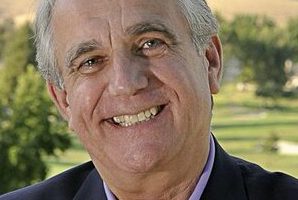Column: CEO Learnings
Former South Carolina Congressman Trey Gowdy is a student of persuasion. He has learned that in the process of persuasion you either bring others closer to your way of thinking or at the very least, to learn about why it is you believe what you believe.
Persuasion is an art, and it is about first understanding what people believe and why they believe it.
It is subtle, incremental, and deliberate.
A critical tool in becoming an effective persuader is tapping into the power that questions offer in communicating and connecting. Gowdy’s book, entitled Doesn’t Hurt to Ask: Using the Power of Questions to Communicate, Connect and Persuade, provides a valuable and useful guide into why questions are effective, the many types of questions that can be asked, and the how and when these questions can be used to meet a specific objective.
Gowdy’s guide is presented in three parts, as highlighted below.
What You Need to Know Before You Open Your Mouth
Part One, What You Need to Know Before You Open Your Mouth, focuses on knowing what you want to accomplish.
For example, do you want to be affirmative, be genuine, get more information, be corroborative, impart information to others, impeach or undercut another, be defensive, or to deflect?
Measure success
Next, the author asks you to think about how you will measure success and how hard will it be.
For example, do you want to begin a relationship, repair one, or end one? Do you intend to pacify or infuriate? And/or do you want to reach a consensus or end in conflict?
Emotions
Finally in Part One, Gowdy touches on emotion.
Emotions are powerful and they work when it comes to moving people. But here is the key: Be emotional about fairness, about justice, about opportunity. Do not simply be emotional for its own sake.
In order for emotions to be earnest, connect to some larger belief or truth. Keep in mind that crocodile tears are shed while crocodiles eat their prey. Contrived emotion is destructive.
As a communicator, you must be sincere, authentic and credible. You cannot fake sincerity. Believe what you are saying or no one else will. If you are not invested in what you’re selling, no one else.
Questions that persuade
In Part Two, The Act (And Art) of Persuasion, provides a guide to questions that can be used to persuade.
Questions can be used to corroborate or to contradict. They either advance your own point or slow down the other person’s point. They tend to either prove or disprove the point in question.
Questions make the point at hand more, or less, likely to be true.
So-called “softball questions” corroborate, while so-called “hardball questions” contradict, undercut, or impeach. Hardball questions are not friendly questions.
Not surprisingly, good questions (that often begin with phrases such as “I believe, I think, or I feel”) have a greater likelihood of persuasion than declarative sentences.
Rather than making a point, questions are used to prove or disprove a point. These questions may be either overt or covert, obvious or subtle, nuanced, or coarse.
Gowdy’s guide continues with the pluses and minuses of leading vs non-leading questions; the complexity of the question “why” (you can lose control if not used well); credibility killers; impeaching the facts, the key principle and/or the person; “hitchhiking”; the power and overuse of repetition (the “Rules of 7 & 9”); big words vs small words; the art of absurdity and hyperbole; and the use of silence and filibuster.
Go forth and conquer
In Part Three, Go Forth and Conquer, provides tips on how you can put the art of asking questions into action in your daily life. The results include your improved ability and confidence in persuasion, and aving more meaningful dialogue about what you truly care about.
Mastering the art of asking good questions requires thought, practice, discipline, and plain old hard work.
My personal experience
I have always had an interest in the use of questions and even more so in the past five years with my radio show, THE MENTORS RADIO, which airs Saturdays on Salem Media’s KTRB, 860 AM in San Francisco, and everywhere else on iHeart radio. (After broadcasting it is available 24/7 on all popular podcast platforms).
As I often have told my guests, the burden of producing a good show rests on my shoulders and the questions I ask.
That’s why I spend a lot of time prepping for each show with a focus on which questions to ask.
Gowdy’s Doesn’t Hurt to Ask book has become a good reference guide for me and will be used extensively well beyond my show.
This is an excellent book for those wanting to improve their powers of persuasion and the overall quality of their communications in every aspect of their life.
RELATED RESOURCES:
- Doesn’t Hurt to Ask: Using the Power of Questions to Communicate, Connect, and Persuade, by Trey Gowdy
- The Mentors Radio show
View Articles Thomas M. Loarie is a popular host of The Mentors Radio Show, the founder and CEO of BryoLogyx Inc. (BryoLogyx.com), and a seasoned corporate... MORE »



You must be logged in to post a comment.